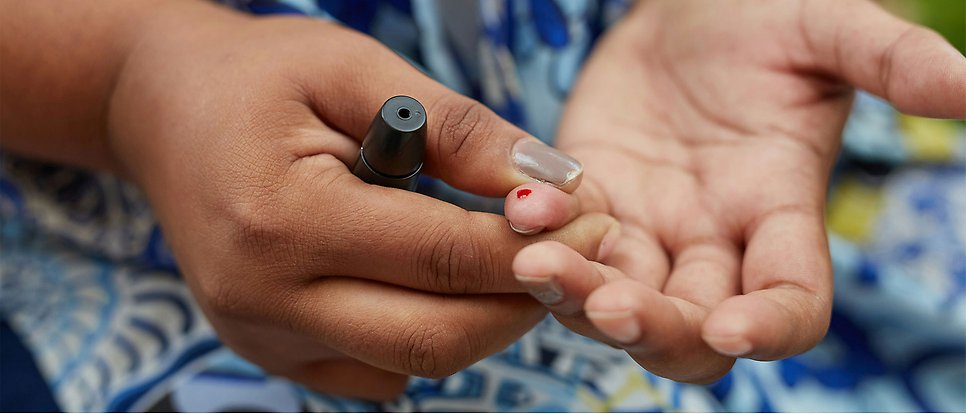New study for the diagnosis of ovarian cancer recurrence

A new study at Uppsala University will investigate whether home blood tests can lead to faster detection of ovarian cancer recurrence. Photo: Unsplash.
Ovarian cancer is the deadliest of all gynaecological cancers, with more than 700 new cases annually in Sweden. To facilitate earlier detection of recurrences, a groundbreaking study is now underway at Uppsala University, Uppsala University Hospital, and the University Hospital of Umeå. The study aims to evaluate whether home blood tests can lead to quicker detection of recurrences, thereby enabling earlier interventions.
In Sweden, follow-up routines for ovarian cancer vary, between 2 and 4 doctor’s visits per year, sometimes accompanied by testing for the tumour marker CA 125. Early detection of recurrences can allow for surgical interventions that increase the rate of survival. Against this backdrop, a research group at Uppsala University, funded by the Swedish Research Council, is launching a study to evaluate the follow-up of ovarian cancer through home blood tests.

“The method may eventually increase the likelihood of surgery or treatment,” says Karin Stålberg, Docent at the Department of Women’s and Children's Health. Photo: Peter Stålberg.
“Our research group has identified a new panel of protein markers in the blood which, according to retrospective studies, appear to diagnose ovarian cancer recurrences earlier than current methods. In the FOLL-OV study, we aim to investigate whether more frequent home blood tests and analysis of this new protein panel can detect recurrences earlier,” says Karin Stålberg, Docent at the Department of Women’s and Children’s Health.
“In retrospective studies, we have found that this set of proteins can detect recurrences up to 60 days before clinical diagnosis. This could ultimately increase the likelihood of renewed surgery or quicker initiation of oncological treatment, thereby improving the prognosis.”
The translational study is conducted in collaboration with researchers at Umeå University and aims to include 100 women from Uppsala University Hospital and the University Hospital of Umeå. The women will take a blood sample from their finger once a month, between regular doctor’s visits, for up to a year. The blood samples will then be analysed with a protein panel specifically tailored for ovarian cancer.
“Being able to offer women a simple, evidence-based home test for follow-up could, in the long term, transfer resources from routine follow-up visits to better and faster availability when needed. Additionally, home blood tests could be applied to other cancer diagnoses and areas such as screening programmes,” says Stefan Enroth, Docent at the Department of Immunology, Genetics and Pathology.
Robin Widing
